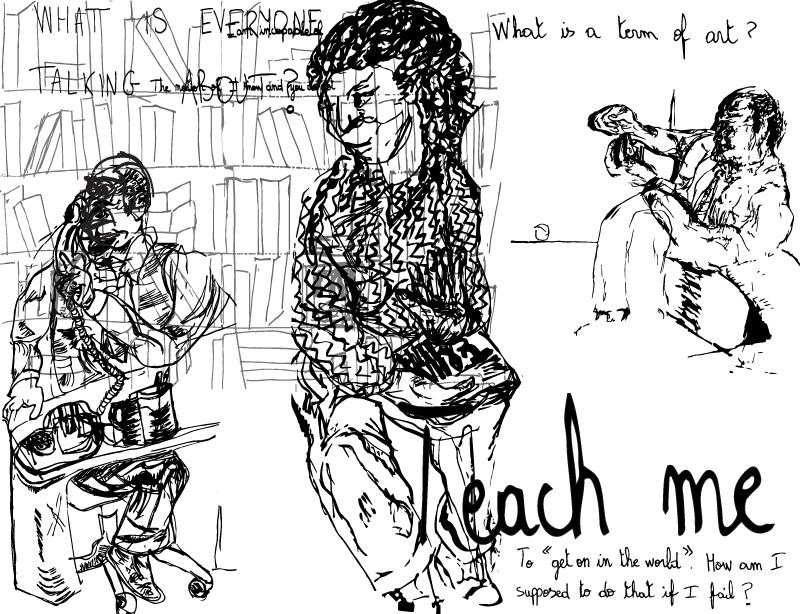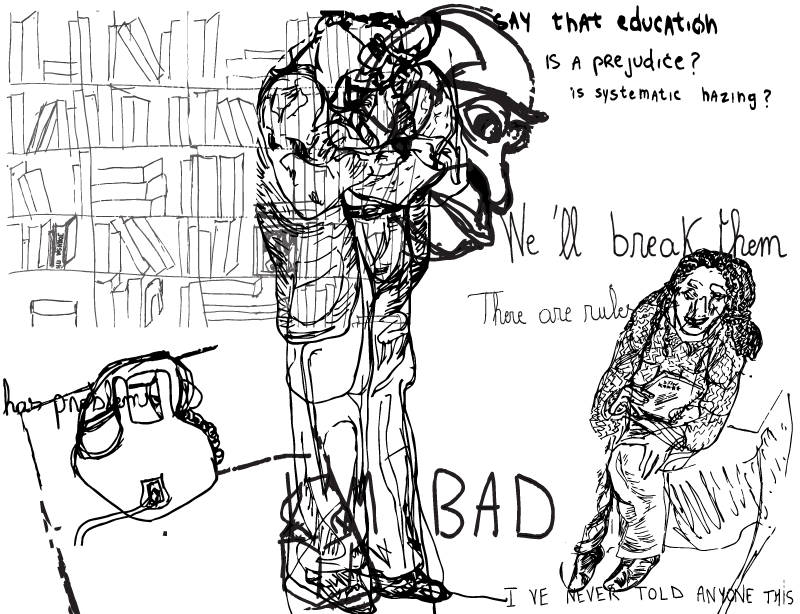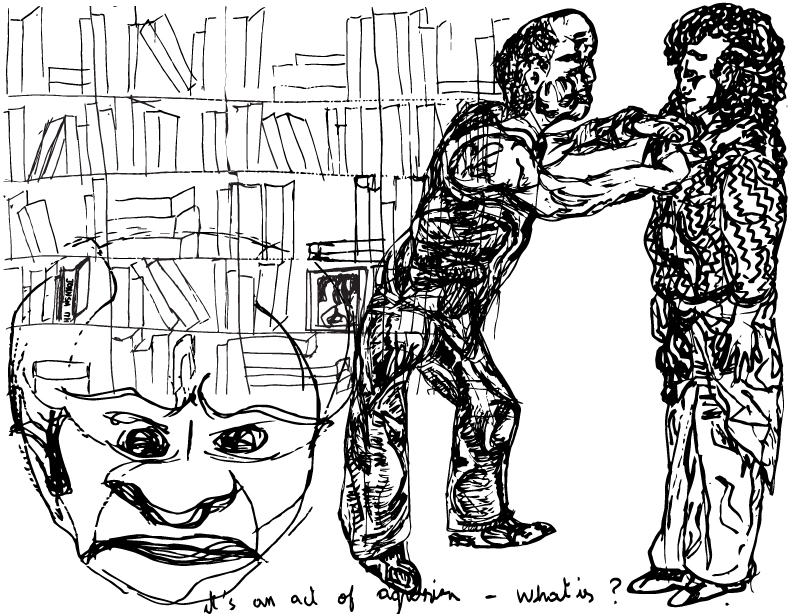
Landline telephone conversations aside, David Mamet’s 1992 play feels so completely current that if it was written in 2018 I’d be annoyed by how thoroughly it was exploiting the zeitgeist. You can see why Walnut Street Theatre included it in its 2018/19 Independence Studio on 3 season.
A humanities professor, John (Johnnie Hobbs, Jr.) is up for tenure and about to put a down payment on a new home in anticipation of his promotion. He meets with uncertain student Carol (Jessica Johnson), who’s struggling in his class and wants assistance: “I walk around from morning till night with this one thought: that I’m stupid.”

He seeks to mentor her (“no one thinks you’re stupid”), but over the course of their meetings, the power he holds over her becomes evident—and perhaps misunderstood. She accuses him of harassment, and eventually worse.
I remember seeing this around the turn of the millennium with Carol played as a Glenn Close-type crazy lady. A fellow audience member recounted an incident at the original Broadway run when an audience member called for John to “slap the bitch.”
In the wake of the #MeToo movement, such characterizations and reactions would be impossible—and unwelcome. Debi Marcucci’s direction sees Carol as a reasonable young woman who matures over the play (reflected in costumes by Rebecca Dwight). Her confidence and certainty unsettle and expose John, a speciously sympathetic character (a sentiment enhanced by Hobbs’s natural likability). The decision to cast two actors of color adds to Mamet’s script; we see why John would feel connected to Carol and get that they may have come from similar backgrounds.[

Hobbs and Johnson mostly capture the rhythm of Mamet’s realistic dialog, though Hobbs’s one-way phone conversations feel unconvincing. The confines of the Walnut’s third floor space mean we spend much of the play with partial view and blocking options are limited, though this doesn’t explain Marcucci’s decision to underplay the physical interaction between the characters.
The crux of the play rests on how we interpret that physical interaction. Carol’s interpretation, encouraged by unseen advisers, threaten everything John has worked for. But “what have you worked for?” Carol asks and answers: “power.”
John’s exercise of a power he’s unwilling to acknowledge gives Mamet’s complex, compelling play its harrowing ending.
“Yes, that’s right.”
[Walnut Street Theatre Independence Studio on 3, 825 Walnut Street] January 15-February 17, 2019; walnutstreettheatre.org
